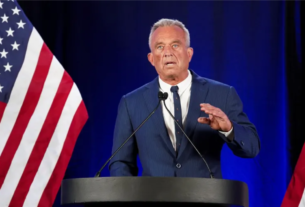The United States has begun expanding its submarine presence on Australia’s strategic northern coast as part of the AUKUS security pact. The move strengthens military ties between the U.S., Australia, and the United Kingdom amid growing tensions in the Indo-Pacific.
“You need strong deterrence in this region,” a senior U.S. defense official said. China’s expanding military influence has raised security concerns for Western allies.
American nuclear-powered submarines will now rotate through Australian ports more frequently. The long-term goal is to help Australia develop its own fleet of advanced submarines.
The first phase of the plan includes construction projects at key naval bases. Upgrades will allow Australia to host U.S. and U.K. submarines on a permanent basis.
Australia will eventually acquire nuclear-powered submarines under the pact. The first domestically built vessels are expected to be operational in the 2040s.
China has strongly opposed the agreement. Officials in Beijing claim AUKUS threatens peace in the Indo-Pacific.
“You are pushing the region toward an arms race,” a Chinese foreign ministry spokesperson said. The government has warned against Western military expansion.
The U.S. argues that a stronger Australian navy will promote stability. Officials say the pact ensures freedom of navigation in the Pacific.
Australia currently relies on aging diesel-powered submarines. Military leaders believe nuclear-powered vessels will significantly enhance defense capabilities.
The new submarines will be quieter, faster, and capable of longer deployments. These advantages make them harder to detect by rival forces.
Washington has committed billions of dollars to the AUKUS project. Investments will fund infrastructure, training, and technology transfers.
The United Kingdom is also playing a key role. British engineers are assisting with submarine design and production.
Australia will send personnel to the U.S. and U.K. for training. Experts say this is essential for developing nuclear submarine expertise.
Public opinion on the deal remains divided. Some Australians worry about the high cost and long timeline of the project.
“You cannot ignore the risks of nuclear technology,” an opposition lawmaker said. Critics also fear the agreement could increase tensions with China.
Australia insists the submarines will not carry nuclear weapons. The government says the focus is on defense, not aggression.
China has increased military activity near Taiwan and the South China Sea. Western allies see this as a direct challenge to regional security.
Beijing has accused the U.S. of trying to contain its influence. Chinese officials claim AUKUS is part of a broader strategy to block China’s rise.
The U.S. maintains that its alliances are about stability, not confrontation. Military leaders emphasize that deterrence prevents conflicts.
American submarines will start arriving in Australia more frequently. The plan includes rotating visits from Virginia-class attack submarines.
Long-term cooperation between the three allies is expected to deepen. Defense officials describe AUKUS as a historic shift in Australia’s security strategy.
The agreement represents a major investment in Australia’s future defense. Political leaders argue that the Indo-Pacific is too important to leave unprotected.
The expansion of U.S. submarine operations marks a new phase in the AUKUS partnership. Military presence in the region is set to increase in the coming years.




